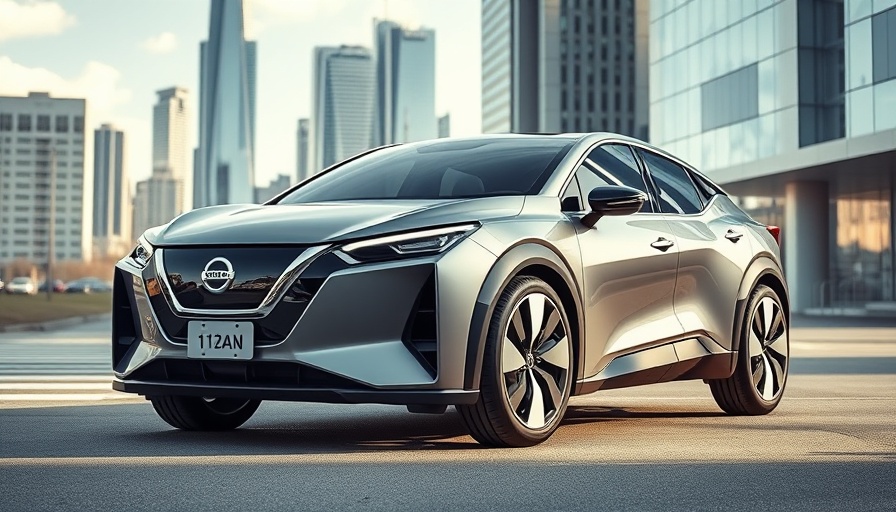
Nissan's Bold Move: Building EVs and Batteries in America
Nissan is gearing up for a significant shift in its operations by committing to build its future electric vehicles (EVs) and their batteries within the United States. This initiative is underscored by a $661 million deal with SK On, a South Korean battery supplier, set to begin producing batteries for Nissan’s next-generation EVs in 2028 at its Canton, Mississippi facility. This aligns with Nissan’s ambitious plan to launch 30 new models in the coming years, with at least half of these being electric.
The Importance of Domestic Production
The automotive industry is at a pivotal moment, especially with rising tariffs on imported vehicles and parts under the current administration. With the U.S. being Nissan's largest market, this strategic shift not only aims to fortify local manufacturing but also to enhance supply chain resilience against policy-induced disruptions. Nissan’s decision also echoes the broader trend among automakers to localize battery production, which is vital for reducing costs and improving delivery times. SK On's expansion, planning eight battery plants in the U.S. by 2033, supports this trend considerably and propels the North American push for EVs.
Future Predictions: What Lies Ahead for Nissan?
As Toyota, Ford, and Tesla are also in the race to dominate the EV landscape, Nissan's factory in Canton is positioning itself as a central hub for electric innovations. Industry observers predict that Nissan could reintroduce popular models like the Nissan Leaf, revamped for modern demands, along with new entries targeted at varied consumer segments. Given the anticipated battery output of 100 GWh from SK On, the automaker is set to match production with aims to enhance their EV lineup effectively.
The Competitive Landscape of EV Batteries and Production
SK On's partnership with Nissan marks the first collaboration between the battery maker and a Japanese automaker, signaling a significant move in an industry where strategies must evolve to keep pace with changes in consumer demand and technology. Competitors also aim to secure similar U.S.-based operations, with the market expected to see explosive growth in battery production to support expected EV sales metrics across major automakers.
Challenges Ahead: Adapting to Market Dynamics
Despite the positive strides, Nissan faces numerous challenges including ongoing financial struggles that could affect its rollout of next-gen EVs. Balancing production costs with sustainable practices will be crucial for their competitiveness in an environment with rapidly shifting regulations and market expectations. The investment in domestic production arms Nissan with insights necessary to adapt and survive within an increasingly disruptive automotive sector.
Conclusion: Time to Stay Informed and Prepared
This initiative to produce EVs and their batteries in the U.S. not only underscores Nissan's commitment to innovation but also reflects a nuanced understanding of current economic factors affecting the auto industry. For dealership owners and general managers, staying informed about automotive developments like these is vital to navigating the future landscape of car sales effectively. To ensure your dealership remains competitive, take proactive steps to understand the implications of these changes.
 Add Row
Add Row  Add
Add 

 Add Row
Add Row  Add Element
Add Element 




Write A Comment